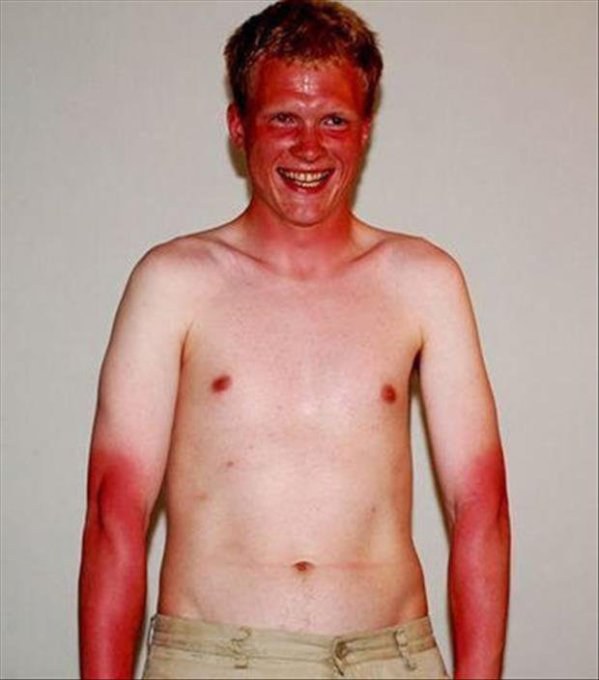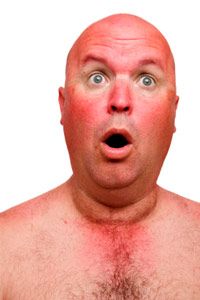DildoFaggins
Illuminated by God (6’4) Highest SMV on the forum
- Joined
- Sep 13, 2023
- Posts
- 5,439
- Reputation
- 8,190
- OP
- #51
peak whiteness, what everyone should strive for
Follow along with the video below to see how to install our site as a web app on your home screen.

Note: this_feature_currently_requires_accessing_site_using_safari
peak whiteness, what everyone should strive for
Ok say you do it. But your original skin colour will come back eventually. You need to keep using it to maintain which u shouldn’t due to risk of ocheonosis or rebound pigmentationIdk bro, seen people with good results. Maybe just don't do as long of a cycle.
yeah effects will last a year or two at most, depens on genetics and sun exposure. Then you have to do another cycleOk say you do it. But your original skin colour will come back eventually
Thanks niggaevery day I try to help ethnics and this is the thanks I get
Hydroquinone: A Comprehensive Guide
Hydroquinone is a chemical compound frequently used in cosmetic products as a skin lightener. It is a depigmenting agent that works by inhibiting the production of melanin, the pigment that gives our skin, hair, and eyes their color. Hydroquinone is a somewhat controversial ingredient due to its potential harmful effects on the skin, specifically when used in higher doses to whiten skin significantly. This thread will provide a comprehensive guide of hydroquinone, including its chemical properties, mechanism of action, side effects, and its use in skin whitening.
Hydroquinone, also known as 1, 4-benzenediol, is a white crystalline solid that is soluble in water and alcohol. It is a reactive molecule and easily undergoes oxidation to produce quinones, which are highly reactive and can cause damage to cells. In cosmetic products, hydroquinone is used in concentrations of up to 4%. but concentrations as high as 10% may be available through compounding pharmacies
Hydroquinone works by inhibiting the enzyme tyrosinase, which is responsible for producing melanin. Without tyrosinase activity, melanin production decreases, and the skin becomes lighter. Hydroquinone also has antioxidant properties, which help to protect the skin against the damage caused by free radicals.
Prior to applying hydroquinone, it is important to cleanse and dry the skin thoroughly. This allows for optimal absorption and ensures that no external factors interfere with the action of the compound. An appropriate amount of the product should be dispensed, typically a pea-sized quantity is sufficient for the targeted area. This amount can be adjusted depending on the size of the area being treated.
Gently and evenly massage the hydroquinone cream or lotion onto the skin using clean fingertips. It is advisable to begin by applying the product to a small, inconspicuous area of the skin before widespread use. This serves as a patch test to check for any adverse reactions or sensitivity. If no side effects occur after 24 hours, it is generally safe to proceed with broader application.
Hydroquinone is typically applied twice daily, unless otherwise directed by a healthcare professional. However, it is crucial to note that prolonged use of hydroquinone at concentrations above 2% may increase the risk of adverse effects. Therefore, it is important to closely monitor the skin for any signs of irritation, redness, or inflammation. In the event of persistent or severe adverse reactions, it is advised to discontinue use and seek medical advice.To optimize the effectiveness of hydroquinone, it is recommended to protect the treated skin from excessive sun exposure. Broad-spectrum sunscreen with a high sun protection factor (SPF) should be applied generously and frequently. This helps prevent the re-pigmentation of the skin and reduces the risk of harmful UV-induced side effects.
Hydroquinone is a controversial ingredient because it can cause skin irritation, redness, and sensitivity to sunlight when used in high concentrations. Some studies have suggested that hydroquinone may be carcinogenic when used in high doses. As a result, the FDA has restricted the use of hydroquinone in over-the-counter products to only 2% concentration and recommends the use of hydroquinone only under the guidance of a physician. (*Please note that you can get around this by obtaining your supply through online vendors, often Indian pharmacies)
View attachment 2481607 (Example of irritation potentially caused by hydroquinone)
Soft-maxxing alternatives to hydroquinone include kojic acid, arbutin, skin peels and vitamin C. A lot of these ingredients work by inhibiting the production of melanin and can be found in many over-the-counter products. However, it is important to note that these alternatives are most often not even nearly as effective as hydroquinone.
Here is a prime example of what to expect after several weeks of a successful hydroquinone treatment:
Tags: @BrahminBoss @5.5psl @Gaygymmaxx @Blackgymmax @vampyre @hormonetherapy @TRUE_CEL @Xangsane @Gonthar @enchanted_elixir @curlyheadjames @redmaxx @HernanDrago @garoupilled_ @Napoleon1800 @PseudoMaxxer


Thanks nigga
My condition is being ethnicDon't be retarded and use hydroquinone. It's has detrimental side effects.
Ignore what this pasty dumb fuck is spewing out. Use hydroquinone if you have melasma or an actual condition.
This might me the biggest ethnic cope I’ve ever seen. JFL at this absolutely inferior subhuman basement dweller from the slums of MumbaiReminder this pasty dog looks like this

And copes with "vampiremaxxing" cause he turns into this when he stays >10 minutes in the sun. He is physically incapable of tanning.

Since you made this lovely guide for the browns, I'll make one for you as well.
Here's how a pasty face cuck like you can ascend in Scandinavia as demonstrated by Patrick.

Good for you trying to better yourself bhaiMy condition is being ethnic
This might me the biggest ethnic cope I’ve ever seen. JFL at this absolutely inferior subhuman basement dweller from the slums of Mumbai

Why would I want that when no self-respecting, attractive woman would ever desire your vile shit skin.Shut your dumbass up and inject a gallon of melanotan to fit your beauty standard in Scandanavia you anemic fuck.
Coping with "muh vampire skin" cause you turn into a rotisserie by spending 2 minutes in the sun.
What's the matter? I'm trying to help you like you were trying to help the ethics boo

Why would I want that when no self-respecting, attractive woman would ever desire your vile shit skin.
View attachment 2489153
Coping so fucking hardWhy would I want that when no self-respecting, attractive woman would ever desire your vile pasty pig skin.

Coping so fucking hardimagine have such an inferiority complex
No I just am superior, even the fuhrer admitted to thatCoping so fucking hardimagine have such a superiority complex
No I just am superior, even the fuhrer admitted to that
what?Your post history with BBC + cuckolding suggests otherwise.
what about itScandi btw


Scandi? Surely you’re pale asf anywayHydroquinone: A Comprehensive Guide
Hydroquinone is a chemical compound frequently used in cosmetic products as a skin lightener. It is a depigmenting agent that works by inhibiting the production of melanin, the pigment that gives our skin, hair, and eyes their color. Hydroquinone is a somewhat controversial ingredient due to its potential harmful effects on the skin, specifically when used in higher doses to whiten skin significantly. This thread will provide a comprehensive guide of hydroquinone, including its chemical properties, mechanism of action, side effects, and its use in skin whitening.
Hydroquinone, also known as 1, 4-benzenediol, is a white crystalline solid that is soluble in water and alcohol. It is a reactive molecule and easily undergoes oxidation to produce quinones, which are highly reactive and can cause damage to cells. In cosmetic products, hydroquinone is used in concentrations of up to 4%. but concentrations as high as 10% may be available through compounding pharmacies
Hydroquinone works by inhibiting the enzyme tyrosinase, which is responsible for producing melanin. Without tyrosinase activity, melanin production decreases, and the skin becomes lighter. Hydroquinone also has antioxidant properties, which help to protect the skin against the damage caused by free radicals.
Prior to applying hydroquinone, it is important to cleanse and dry the skin thoroughly. This allows for optimal absorption and ensures that no external factors interfere with the action of the compound. An appropriate amount of the product should be dispensed, typically a pea-sized quantity is sufficient for the targeted area. This amount can be adjusted depending on the size of the area being treated.
Gently and evenly massage the hydroquinone cream or lotion onto the skin using clean fingertips. It is advisable to begin by applying the product to a small, inconspicuous area of the skin before widespread use. This serves as a patch test to check for any adverse reactions or sensitivity. If no side effects occur after 24 hours, it is generally safe to proceed with broader application.
Hydroquinone is typically applied twice daily, unless otherwise directed by a healthcare professional. However, it is crucial to note that prolonged use of hydroquinone at concentrations above 2% may increase the risk of adverse effects. Therefore, it is important to closely monitor the skin for any signs of irritation, redness, or inflammation. In the event of persistent or severe adverse reactions, it is advised to discontinue use and seek medical advice.To optimize the effectiveness of hydroquinone, it is recommended to protect the treated skin from excessive sun exposure. Broad-spectrum sunscreen with a high sun protection factor (SPF) should be applied generously and frequently. This helps prevent the re-pigmentation of the skin and reduces the risk of harmful UV-induced side effects.
Hydroquinone is a controversial ingredient because it can cause skin irritation, redness, and sensitivity to sunlight when used in high concentrations. Some studies have suggested that hydroquinone may be carcinogenic when used in high doses. As a result, the FDA has restricted the use of hydroquinone in over-the-counter products to only 2% concentration and recommends the use of hydroquinone only under the guidance of a physician. (*Please note that you can get around this by obtaining your supply through online vendors, often Indian pharmacies)
View attachment 2481607 (Example of irritation potentially caused by hydroquinone)
Soft-maxxing alternatives to hydroquinone include kojic acid, arbutin, skin peels and vitamin C. A lot of these ingredients work by inhibiting the production of melanin and can be found in many over-the-counter products. However, it is important to note that these alternatives are most often not even nearly as effective as hydroquinone.
Here is a prime example of what to expect after several weeks of a successful hydroquinone treatment:
Tags: @BrahminBoss @5.5psl @Gaygymmaxx @Blackgymmax @vampyre @hormonetherapy @TRUE_CEL @Xangsane @Gonthar @enchanted_elixir @curlyheadjames @redmaxx @HernanDrago @garoupilled_ @Napoleon1800 @PseudoMaxxer
It's great in lower % for whites as well when it comes to getting rid of pigmentation and redness.Scandi? Surely you’re pale asf anyway
Bro tagged @Xangsane and not me also you nigger you aren’t having problems with this I assume? Since you’re proud of your “ethnicness” you racist nigger?Hydroquinone: A Comprehensive Guide
Hydroquinone is a chemical compound frequently used in cosmetic products as a skin lightener. It is a depigmenting agent that works by inhibiting the production of melanin, the pigment that gives our skin, hair, and eyes their color. Hydroquinone is a somewhat controversial ingredient due to its potential harmful effects on the skin, specifically when used in higher doses to whiten skin significantly. This thread will provide a comprehensive guide of hydroquinone, including its chemical properties, mechanism of action, side effects, and its use in skin whitening.
Hydroquinone, also known as 1, 4-benzenediol, is a white crystalline solid that is soluble in water and alcohol. It is a reactive molecule and easily undergoes oxidation to produce quinones, which are highly reactive and can cause damage to cells. In cosmetic products, hydroquinone is used in concentrations of up to 4%. but concentrations as high as 10% may be available through compounding pharmacies
Hydroquinone works by inhibiting the enzyme tyrosinase, which is responsible for producing melanin. Without tyrosinase activity, melanin production decreases, and the skin becomes lighter. Hydroquinone also has antioxidant properties, which help to protect the skin against the damage caused by free radicals.
Prior to applying hydroquinone, it is important to cleanse and dry the skin thoroughly. This allows for optimal absorption and ensures that no external factors interfere with the action of the compound. An appropriate amount of the product should be dispensed, typically a pea-sized quantity is sufficient for the targeted area. This amount can be adjusted depending on the size of the area being treated.
Gently and evenly massage the hydroquinone cream or lotion onto the skin using clean fingertips. It is advisable to begin by applying the product to a small, inconspicuous area of the skin before widespread use. This serves as a patch test to check for any adverse reactions or sensitivity. If no side effects occur after 24 hours, it is generally safe to proceed with broader application.
Hydroquinone is typically applied twice daily, unless otherwise directed by a healthcare professional. However, it is crucial to note that prolonged use of hydroquinone at concentrations above 2% may increase the risk of adverse effects. Therefore, it is important to closely monitor the skin for any signs of irritation, redness, or inflammation. In the event of persistent or severe adverse reactions, it is advised to discontinue use and seek medical advice.To optimize the effectiveness of hydroquinone, it is recommended to protect the treated skin from excessive sun exposure. Broad-spectrum sunscreen with a high sun protection factor (SPF) should be applied generously and frequently. This helps prevent the re-pigmentation of the skin and reduces the risk of harmful UV-induced side effects.
Hydroquinone is a controversial ingredient because it can cause skin irritation, redness, and sensitivity to sunlight when used in high concentrations. Some studies have suggested that hydroquinone may be carcinogenic when used in high doses. As a result, the FDA has restricted the use of hydroquinone in over-the-counter products to only 2% concentration and recommends the use of hydroquinone only under the guidance of a physician. (*Please note that you can get around this by obtaining your supply through online vendors, often Indian pharmacies)
View attachment 2481607 (Example of irritation potentially caused by hydroquinone)
Soft-maxxing alternatives to hydroquinone include kojic acid, arbutin, skin peels and vitamin C. A lot of these ingredients work by inhibiting the production of melanin and can be found in many over-the-counter products. However, it is important to note that these alternatives are most often not even nearly as effective as hydroquinone.
Here is a prime example of what to expect after several weeks of a successful hydroquinone treatment:
Tags: @BrahminBoss @5.5psl @Gaygymmaxx @Blackgymmax @vampyre @hormonetherapy @TRUE_CEL @Xangsane @Gonthar @enchanted_elixir @curlyheadjames @redmaxx @HernanDrago @garoupilled_ @Napoleon1800 @PseudoMaxxer
The risks aren't that bad, worst case scenario you get carcinoma which has a 99% survival rate. Just use plenty of sun screen and avoid excessive sun exposure.Bro tagged @Xangsane and not me also you nigger you aren’t having problems with this I assume? Since you’re proud of your “ethnicness” you racist nigger?
Btw bhai im not convinced tbh. The long term risks to this are so bad. Better be kind of tan tbh
You probably don’t have the answer but there should a way you alleviate some hyperpigmentation on certain parts of the body permanently? Legs for example or neck etc?The risks aren't that bad, worst case scenario you get carcinoma which has a 99% survival rate. Just use plenty of sun screen and avoid excessive sun exposure.
Shut up stop barking bhaiiiIll rape your mother if you take first comment again
So if i want to go a little lighter as a North African shitty looking dull skin nigger i just need oral msm ? What about topical msm cream and goutathion ? Also what can i do to make my skin shinier/ not dull ? Thankscope, now follow my advice ethnic
i'm 0.5 retinol should i go to dermatologist for treat or should stronger retinol firstTret plus azelaic acid msm progesterone aspirin magnesium glycinate lycopene and thyroid all do it safer.
I have 4% Hydroquinoin now, should I use it like tretinoin? So a pea sized amount for the whole face? Or just a pea sized amount for a small part of the face like cheek. An appropriate amount of the product should be dispensed, typically a pea-sized quantity is sufficient for the targeted area. This amount can be adjusted depending on the size of the area being treated.
Pea sized amount for the whole face as you start at least. How are things going btw?I have 4% Hydroquinoin now, should I use it like tretinoin? So a pea sized amount for the whole face? Or just a pea sized amount for a small part of the face like cheek
hmm one of my classmate overdosed on those hydroqunione containing banned skin whitening products and achieved a skin tone 4 shades lighter in like 3 months. almost didnt recognize him. but am bit scared to apply those cream tho since you dont know which cream is real and which one is fake. do you think ill be able to achieve atleast an even tone in like 2 months? i have a severly fucked up skin. using it along with vit c + tret + hydrolic + saliclyic acid. what do u think?a cycle should last up to about 4-6 months so might take some time. 4% is quite low as well so might take a while
That's a lot of actives that you're putting on your skin at the same time, would def consult a derm before starting anything else and make sure to always be using sunscreen.vit c + tret + hydrolic + saliclyic acid
year later and u still are broevery day I try to help ethnics and this is the thanks I get
I'm pretty sure alldaychemist still sells it@DildoFaggins how does one obtain hydroquinone without a prescription now I cant find it
Thank you bhaievery day I try to help ethnics and this is the thanks I get
How shitskin do you have to be to need 10%Bump. Where can I buy 10% hydroquinione